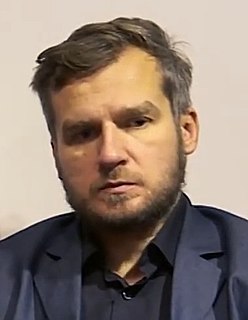A Quote by Edsger Dijkstra
It is a mistake to think that programmers wares are programs. Programmers have to produce trustworthy solutions and present it in the form of cogent arguments. Programs source code is just the accompanying material to which these arguments are to be applied to.
Related Quotes
When the words are fuzzy, the programmers reflexively retreat to the most precise method of articulation available: source code. Although there is nothing more precise than code, there is also nothing more permanent or resistant to change. So the situation frequently crops up where nomenclature confusion drives programmers to begin coding prematurely, and that code becomes the de facto design, regardless of its appropriateness or correctness.
In those days [batch processing] programmers never even documented their programs, because it was assumed that nobody else would ever use them. Now, however, time-sharing had made exchanging software trivial: you just stored one copy in the public repository and therby effectively gave it to the world. Immediately people began to document their programs and to think of them as being usable by others. They started to build on each other's work.
In the mid-1980s, however, the Estonian TV programmers came up with a clever idea: they asked Moscow for millions of rubles to make propaganda in Estonia to fight the Finnish programs' popularity. They got millions from the government, but what they made was not propaganda at all! They simply made good, entertaining programs - no one in Estonia recognized them as propaganda, only Russia thought it was, so they got away with it. Of course, Russia provided their own propaganda programs, but Estonians knew to avoid them.
There's a subtle reason that programmers always want to throw away the code and start over. The reason is that they think the old code is a mess. [...] The reason that they think the old code is a mess is because of a cardinal, fundamental law of programming: It's harder to read code than to write it.




































